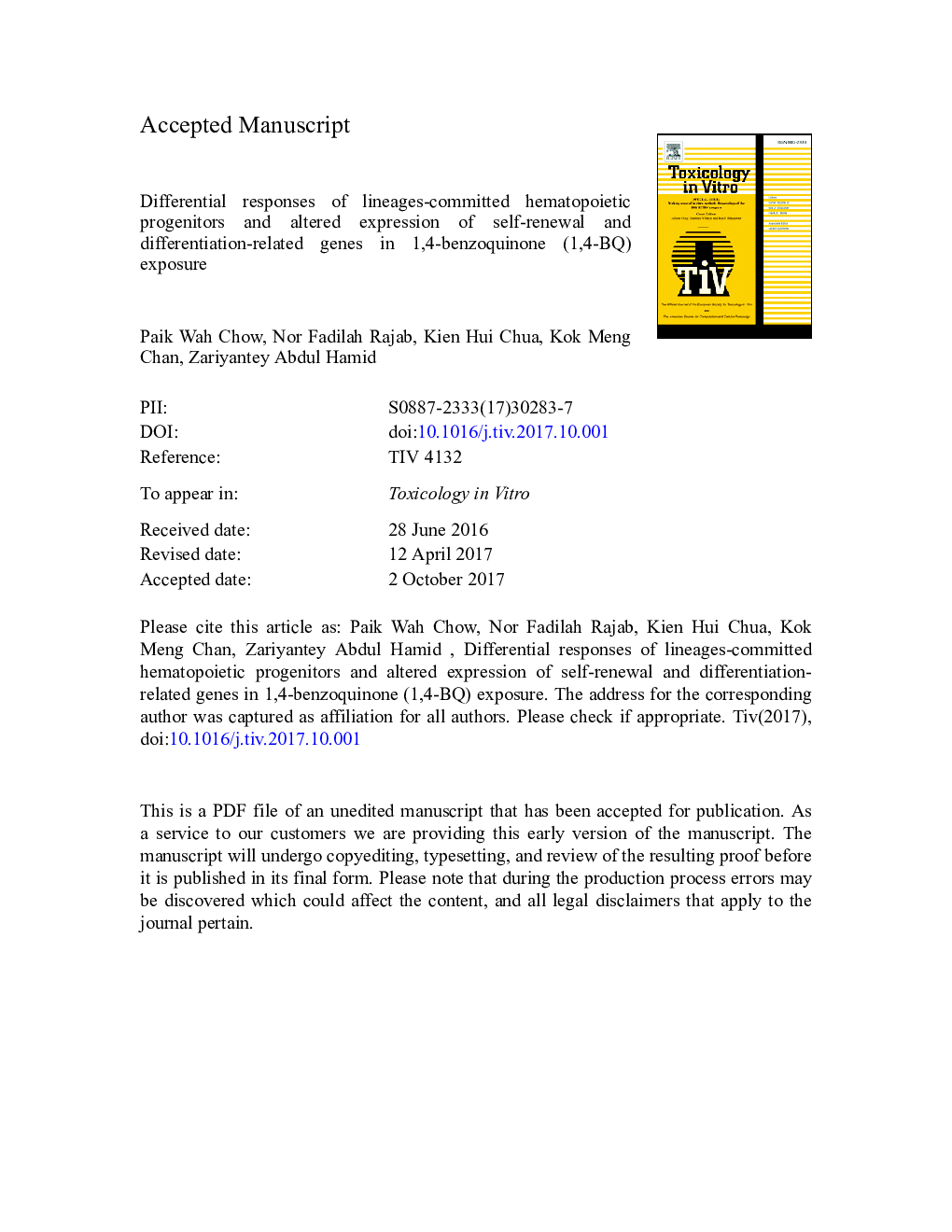| Article ID | Journal | Published Year | Pages | File Type |
|---|---|---|---|---|
| 5562489 | Toxicology in Vitro | 2018 | 28 Pages |
Abstract
Despite of reports on hematotoxic and leukemogenic evidences related to benzene exposure, the mechanism of benzene toxicity affecting the hematopoietic stem and progenitor cells (HSPCs) fate remains unclear. This study aims to elucidate the benzene's effect on the lineages-committed progenitors and genes-regulating self-renewal and differentiation of HSPCs. Isolated mouse bone marrow (BM) cells were exposed to the benzene metabolite, 1,4-benzoquinone (1,4-BQ) at 1.25, 2.5, and 5 μM for 24 h. The clonogenic potency of erythroid, myeloid, and Pre-B lymphoid progenitors was evaluated through colony-forming-cell assay. Quantitative real time-PCR was used to analyze the self-renewal (Bmi-1, HoxB4, and Wnt3) and differentiation (GATA1, GATA2, and GATA3)-related genes' expression levels. 1,4-BQ exposure significantly lowered the clonogenicity of the myeloid progenitor at 1.25 and 2.5 μM (p < 0.05), but affected neither the erythroid nor Pre-B lymphoid progenitors. Furthermore, significant upregulation of HoxB4 expression level was observed at all concentrations. GATA3 and Bmi-1 expressions were also significant upregulated at 2.5 and 5 μM 1,4-BQ, respectively. In conclusion, 1,4-BQ could modulate the fate of HSPCs by altering the self-renewal and differentiation related genes. The definite role of lineages specificity and responsive genes in governing the hematotoxicity and leukemogenicity of 1,4-BQ should be further investigated.
Keywords
Related Topics
Life Sciences
Environmental Science
Health, Toxicology and Mutagenesis
Authors
Paik Wah Chow, Nor Fadilah Rajab, Kien Hui Chua, Kok Meng Chan, Zariyantey Abd Hamid,
